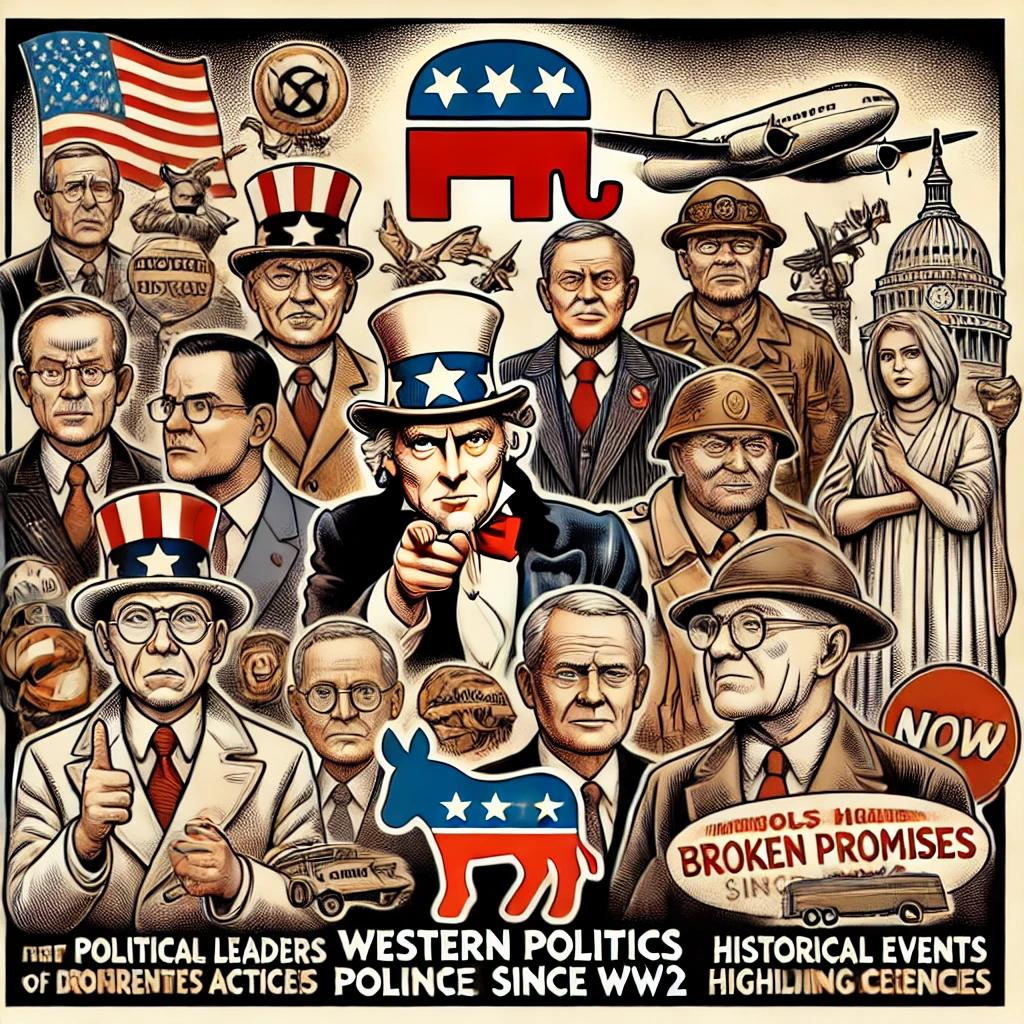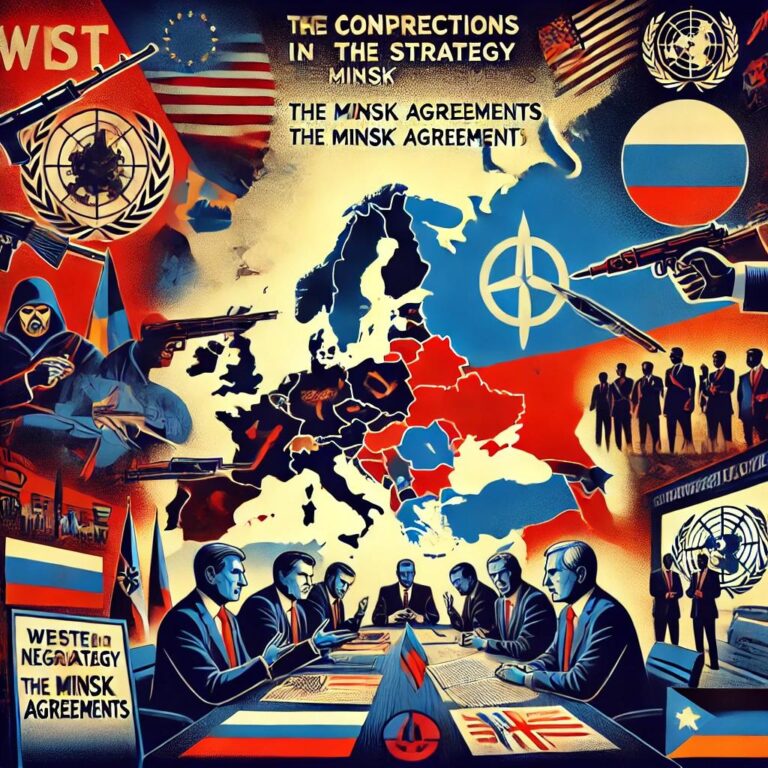
Unmasking the Contradictions: Western Political Actions vs. Democratic Ideals Post-WWII
Introduction
Since World War II’s conclusion, Western politics has faced intense scrutiny over its actions that often contradict its avowed commitment to democracy, human rights, and global stability. This analysis delves into the historical contexts and decisions that reveal this apparent hypocrisy, exploring shifts in geopolitical dynamics and policy decisions through the decades.
The Cold War and Realpolitik
- Ideological Battles and Strategic Alignments: The Cold War era was characterized by an intense ideological standoff between the United States and the Soviet Union, steering Western nations towards a realpolitik approach. This period saw principles frequently sidelined in favor of national interests.
- Compromised Values: Support for Authoritarian Regimes In efforts to curb the spread of communism, Western powers supported authoritarian regimes, such as Pinochet’s Chile and Suharto’s Indonesia, despite their egregious human rights records. Such alliances have cast long shadows on the West’s commitment to democracy.
Economic Interests and Double Standards
- Economics Over Ethics: When Wealth Trumps Welfare Western foreign policy has often placed economic interests above democratic values, leading to glaring double standards. This section explores instances where economic imperatives led to alliances with oppressive regimes, highlighting the selective enforcement of human rights based on strategic interests.
- Selective Human Rights Advocacy: The West’s approach to human rights has been inconsistent, often influenced by strategic and economic considerations. This hypocrisy is evident in its dealings with countries like Saudi Arabia compared to its stance on nations like Iran or North Korea.
Unintended Consequences of Intervention
- The Iraq War and its Aftermath: The 2003 invasion of Iraq, intended to eliminate a dictatorship and spread democracy, instead resulted in regional instability and the rise of extremist groups such as ISIS.
- The Libyan Quagmire: Intervention and Instability The 2011 military intervention in Libya aimed at protecting civilians ended up creating a vacuum of power, leading to prolonged conflict and chaos, underscoring the unintended consequences of Western intervention.
Changing Global Dynamics
- The Rise of New Global Powers: The ascent of emerging economies like China and India has begun to erode Western hegemony in global affairs, presenting new challenges to Western nations’ ability to project their values unilaterally.
- The Power of Public Scrutiny: In today’s interconnected world, Western inconsistencies are more visible than ever, thanks to digital media and global communication networks. This visibility has increased pressure on Western leaders to align their rhetoric more closely with their actions.
Conclusion
The discrepancy between Western rhetoric and action post-World War II stems from various factors, including strategic decisions during the Cold War, economic priorities, and the complex outcomes of military interventions. To uphold their global image and influence, Western nations must endeavor to resolve these contradictions and commit to a foreign policy that truly reflects their stated values of democracy and human rights.


